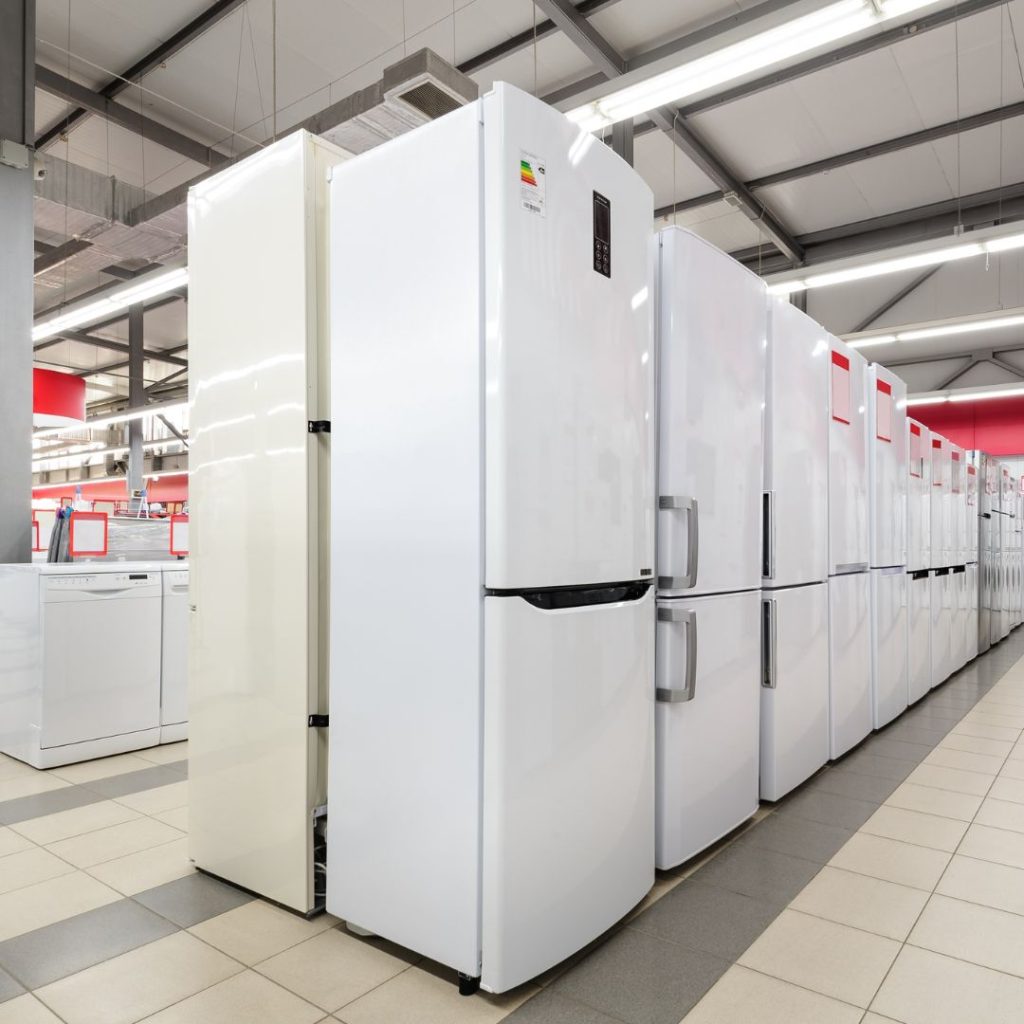EU ban on extremely climate-damaging F-gases in refrigerators

On Tuesday, 16.1.2024, the EU Parliament approved new regulations to minimize emissions of fluorinated gases (F-gases) in heat pumps, refrigerators and air conditioning systems. The agreement reached with the Council of Ministers provides for a gradual ban by 2050. From 2026, new household refrigerators will no longer be allowed to use F-gases for cooling. From 2027, the F-gas ban will apply to air conditioning systems.
What are F-gases anyway?
F-gases are responsible for around 2.5% of EU-wide greenhouse gas emissions. Some of them are significantly more harmful to the climate thanCO2.
These include:
- Fluorinated greenhouse gases such as
- partially fluorinated hydrocarbons,
- perfluorinated hydrocarbons HFCs/PFCs,
- sulphur hexafluoride SF6 (25,000 times more harmful to the climate thanCO2) and
- Nitrogen trifluoride NF3
which are used in refrigerators, air conditioning systems, heat pumps, fire protection, foams or electrical switchgear and
- ozone-depleting substances, such as
- Halons (which are used in fire extinguishers),
- methyl bromide (for pest control) and
- hydrochlorofluorocarbons HFCs/HFCs
which are used in refrigerators and air conditioning systems.
F-gases are man-made greenhouse gases (GHG) with a high global warming potential. Emissions of these gases must be further reduced in order to contribute to the EU's climate targets and comply with international agreements (the Montreal Protocol and the associated Kigali Amendment).
Voting result on fluorinated gases
With 457 votes in favor, 92 against and 32 abstentions, MEPs approved an agreement reached with the Council to further reduce emissions of fluorinated gases.
- The text provides for a complete phase-out of hydrofluorocarbons (HFCs) by 2050,
- including a timetable for reducing the EU consumption quota between 2024 and 2049, with a planned reduction of 80% in the number of authorized F-gases by 2032.
- The F-gas ban will apply to air conditioning systems and some heat pumps from 2027
- In addition, strict regulations will be introduced to ban the sale of products containing F-gases in the EU.
- Furthermore, specific deadlines are set for phasing out the use of F-gases in those sectors in which a switch to alternatives is technologically and economically feasible, such as household refrigerators, air conditioning systems and heat pumps.
Voting result of ozone-depleting substances
The agreement to reduce emissions of ozone-depleting substances (ODS) was adopted with 538 votes in favor, 8 against and 13 abstentions.
- The law introduces requirements for the recovery and recycling of such substances in building materials during renovations - especially insulation foams - which are the main source of remaining ODS emissions in the EU.
- In addition, strict exemptions are introduced for the use of these substances as starting materials (for the manufacture of other substances, e.g. in the pharmaceutical or chemical industry), as processing aids, in laboratories and for fire protection.
The parliamentary negotiator for the new law, Bas Eickhout (Greens/EFA, NL), said: "An end to F-gases is crucial, not only because these gases are extremely harmful to the climate, but also because we are creating clarity and investment security for industry. European companies are already leading the way in developing clean alternatives to F-gases, so this law will be good for the climate and the European economy."
The decision will prevent heat pumps, which are crucial for the energy transition, from emitting harmful chemicals in the long term, Eickhout also explained.
Rapporteur Jessica Polfjärd (EPP, SE) said: "Ending emissions of ozone-depleting substances is crucial to prevent damage to health and the environment from a depleted ozone layer and contributes to greenhouse gas savings in line with the European Union's climate target."
For the European Environmental Bureau (EEB), this is a "historic" success for health and the environment. The EU is setting "unprecedented environmental standards" at international level, the organization said of the vote.
Next steps
After the final votes in plenary, the Council still has to formally approve the texts before they are published in the Official Journal of the EU.
By adopting this report, Parliament is responding to citizens' expectations of the EU to support the transition to a sustainable and resilient growth model and to promote greener production processes.






